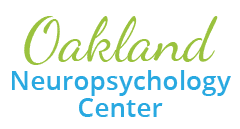Did you know that distractibility, impulsivity, and inattention are core symptoms of ADHD but also of lack of sleep? I remember during my training that one of my professors suggested that we think of ADHD as a ‘diagnosis of exclusion’ meaning that, other possible reasons a child or person is struggling with attention should first be considered and if indicated, ruled-out. One of these reasons is often overlooked: sleep problems.
There have been many articles and studies published over the years revealing the impact of sleep deprivation or lack of sleep on daily functioning. In young children, this can manifest as increased irritability, hyperactivity, poor attention and focus, and learning problems. In teenagers and adults, they can come across as lethargic, unfocused, unmotivated, and as having difficulty completing daily tasks. The brain’s ability to stay focused and alert, reason and problem solve, and efficiently learn and remember information is most vulnerable to the effects of sleep problems. Emotional problems can also be caused by sleep issues, including anxiety and depression.
It has been found that many children with ADHD experience sleep problems, including difficulty falling asleep, waking up in the middle of the night, and restless sleep. Specific sleep problems, such as sleep apnea, manifest as agitated or unrefreshing sleep, and can be associated with snoring in children and adults. This condition can certainly lead to attentional, behavioral and learning problems during the day. However, this can also be reversible and therefore do not hesitate to talk to your child’s pediatrician or to your primary care provider about this, if you suspect you or your child might be struggling with sleep issues. In some of the cases I have seen, medication for attentional problems was successfully stopped after sleep problems were identified and treated. In other cases, attentional issues remained and neuropsychological testing we performed helped determine the reason for these problems and the appropriate treatment plan. If you feel this may be the case for you, do not hesitate to call Dr. Isabelle Beaulieu at Oakland Neuropsychology Center to schedule a consultation at your earliest convenience.
Finally, good sleep hygiene is key to a restful night’s sleep for everyone. This includes reducing the amount of light exposure prior to going to bed, eliminating ‘screen time’ before bed, keeping electronics out of the bedroom, creating a relaxing environment, building a bedtime routine, sticking to the same sleep schedule as much as possible, and avoiding caffeine.



